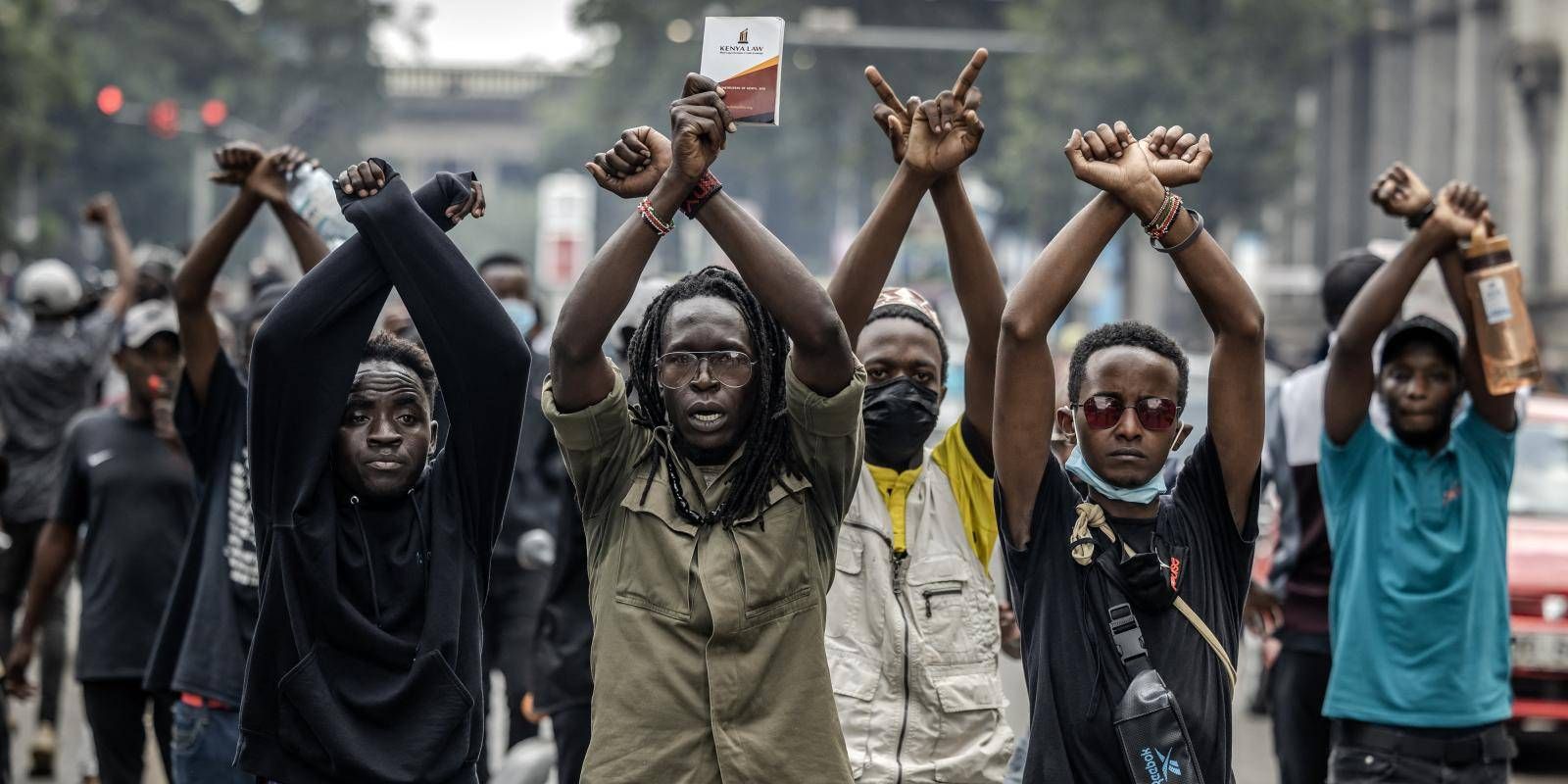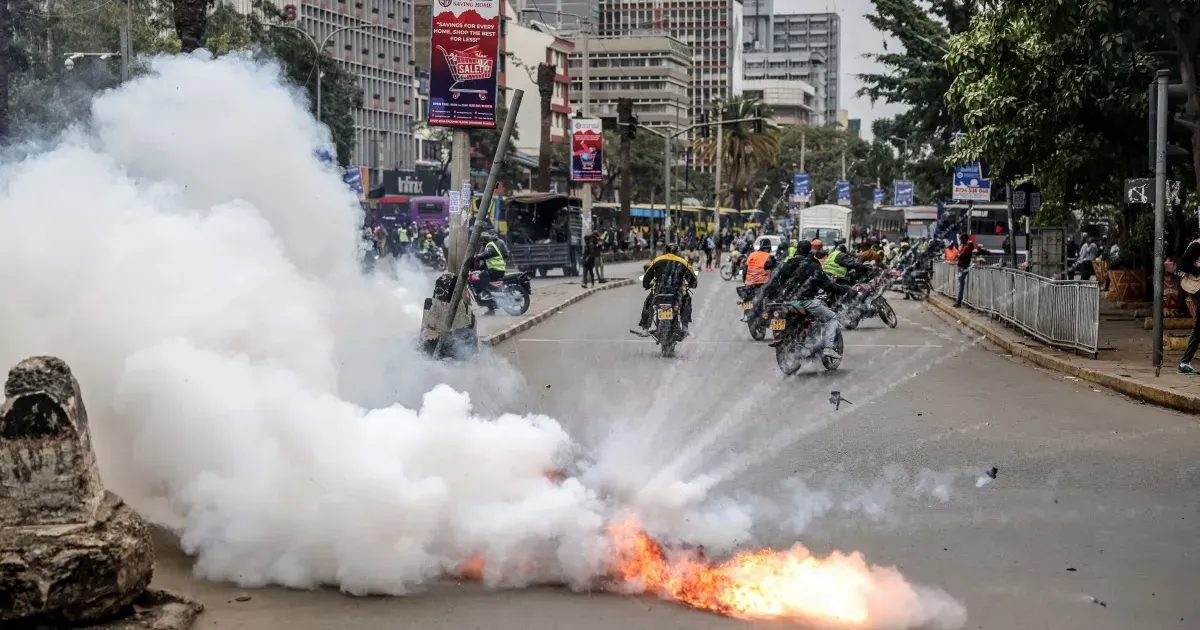Your Read is on the Way
Every Story Matters
Every Story Matters
The Hydropower Boom in Africa: A Green Energy Revolution Africa is tapping into its immense hydropower potential, ushering in an era of renewable energy. With monumental projects like Ethiopia’s Grand Ethiopian Renaissance Dam (GERD) and the Inga Dams in the Democratic Republic of Congo, the continent is gearing up to address its energy demands sustainably while driving economic growth.
Northern Kenya is a region rich in resources, cultural diversity, and strategic trade potential, yet it remains underutilized in the national development agenda.

Can AI Help cure HIV AIDS in 2025

Why Ruiru is Almost Dominating Thika in 2025

Mathare Exposed! Discover Mathare-Nairobi through an immersive ground and aerial Tour- HD

Bullet Bras Evolution || Where did Bullet Bras go to?
In under 40 minutes, the BBC did what no mainstream Kenyan media house dared attempt—lift the veil on a day soaked in blood and silence. Titled The Blood Parliament, the documentary revisits the now-infamous massacre of peaceful Gen Z protestors in Kenya, revealing not just the bodies that fell, but the institutional cowardice that allowed them to fall unnoticed. It is not just an exposé—it is a reckoning.
Across Nairobi and beyond, thousands of young people had mobilized to resist draconian policy reforms, rallying peacefully with slogans, songs, and solidarity. But what began as civil resistance ended in a bloodbath—live bullets ripping through the chants, as state-backed forces allegedly opened fire. Emergency ambulances meant to save lives were seen evacuating MPs, leaving the wounded behind. The BBC’s documentary captures these moments with brutal honesty, finally giving voice to those silenced by bullets.
The tragedy wasn't just in the deaths—it was in the deafening silence that followed. Kenyan media failed to tell the truth. Politicians painted the victims as “organized criminals,” and headlines focused more on political PR than the slain youth lying on tarmac roads. The BBC, broadcasting from afar, provided the first unfiltered account. Within hours of release, the documentary amassed millions of views and reactions worldwide, triggering an outpouring of grief, fury, and solidarity.

The response was not limited to Kenya. Viewers from Argentina, the UK, Uganda, Tanzania, Somalia, South Africa, and even The Gambia posted emotional tributes online. Hashtags like #WeStandWithKenya, #GenZMassacre, and #BloodParliament began trending globally. The African diaspora, activists, artists, and even clergy weighed in. What local institutions couldn’t—or wouldn’t—say, the people screamed from every corner of the internet: “This was murder. And someone must answer.”
The documentary’s impact was visceral. Comment sections turned into virtual memorials. “It could’ve been any of us,” wrote @Diana_Marua, her comment echoing through thousands of likes and replies. @Lightscare2 from Argentina wrote: “Watching from Argentina… this is so sad. I stand with Kenya.” For many, the raw footage of bloodied protestors, including young heroes like Ademeba—seen aiding the wounded under fire—struck a personal chord. Tributes poured in for the nameless and the known, especially victims like Erick Shieni, whose laughter, his sister said, “was infectious. We will never forget.”
One Tanzanian viewer summed it up powerfully: “This is not just a documentary, not just a protest, not just a headline. It’s the heartbeat of a people crying for justice.” That heartbeat grew louder with each share, each like, each tear-streaked reaction video.
What makes this moment different is the unity of voice and the digital uprising that followed. Gen Z Kenyans are not backing down. Rather than silence, they are responding with calls to action—registering to vote, pushing for electoral accountability, and demanding justice in courtrooms and comment threads. TikTok, X (formerly Twitter), and YouTube have become battlegrounds of memory and resistance.

\
One viral comment called for the documentary to be played on national TV during the 2027 elections. Another suggested it be translated into all vernacular languages, so even elders in remote villages understand the cost of silence. One user, @celestinas_world, imagined it blasting from Bluetooth speakers on election day. This isn’t just content—it’s a campaign. A movement. A rebuke to the state machinery that weaponized both bullets and lies.
The contrast between foreign and local journalism couldn’t be starker. While Kenyan outlets tiptoed around the truth, the BBC named it, showed it, and honored it. Commenters noted how shameful it was that a UK-based outlet had to tell Kenya’s truth. “Local media interviewed sellouts,” one user said, “BBC interviewed history.” The documentary ends with a chilling note: “Our deepest thanks to photojournalists, production staff, and producers who cannot be credited for their own safety.” That sentence alone speaks volumes about the cost of truth in modern Kenya.
What happened in Kenya is no longer just a Kenyan issue. It is an African one. The BBC documentary stirred a continental conscience. Citizens from South Africa, Nigeria, Uganda, Somalia, and even Morocco expressed unity in mourning and fury. “Rest in peace, young heroes—you will not be forgotten,” said a South African viewer. The pain is cross-border, the solidarity cross-generational.
Even in tragedy, the Kenyan Gen Z has become a symbol of resistance and hope. They are no longer just protestors. They are teachers. Storytellers. Martyrs. From street chants to cinematic retellings, their truth now lives—and the world is finally listening.
Read more about this story: 'They aimed to kill' - BBC identifies security forces who shot Kenya anti-tax protesters
0 comments